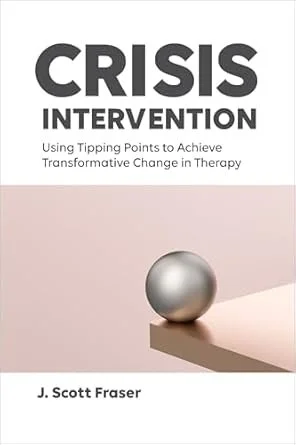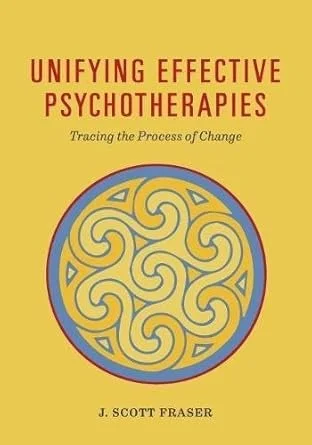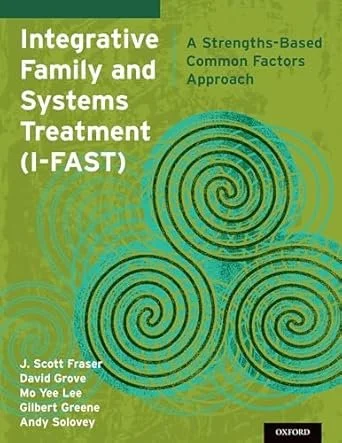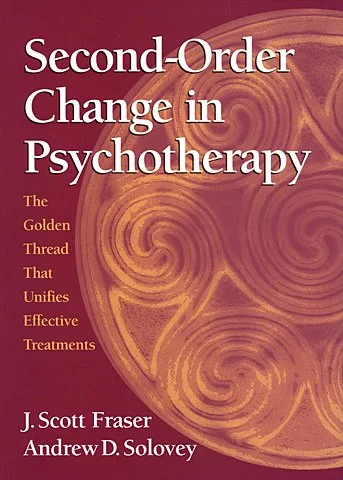
My work through The Process View is reflected in a series of publications—books, chapters, and articles—that trace the evolution of this unifying perspective on change across diverse contexts of practice. These works outline how The Process View integrates effective approaches to therapy, supervision, and systems intervention.
Books authored by J. Scott Fraser, PhD
Crisis Intervention: Using Tipping Points to Achieve Transformative Change in Therapy
By J. Scott Fraser, PhD (c) 2025. Washington, DC: APA Books.
This book shows mental health providers how to envision crises as time-limited windows of opportunity—as tipping points clients can seize to achieve new insights and move in positive directions in their lives. Aligns with APA Divisions 38 and 50.
Most mental health practitioners have been trained to conduct risk assessments and to mitigate danger to their clients and those around them. However, many providers lack a thorough understanding of the cause and nature of mental health crises and struggle to safely and successfully provide crisis intervention. Instead of seeking to return clients in crisis to their previous baseline, providers can seize the opportunity presented by crises and tip them toward rapid resolution.
Unifying Effective Psychotherapies: Tracing the Process of Change
By J. Scott Fraser, PhD (c) 2018. Washington, DC: APA Books.
Mental health professionals have long debated what makes effective psychotherapy work. Is it a specific treatment modality, or a set of common factors such as a strong therapeutic relationship? J. Scott Fraser argues that both perspectives are correct. His transtheoretical, transdiagnostic framework identifies the process of change that underlies all effective treatments. From this viewpoint, all client problems boil down to negative, recurring cycles of thought and behavior. The goal of psychotherapy is to disrupt or reverse those cycles.
Integrative Family and Systems Treatment (I-FAST): A Strengths-Based Common Factors Approach
By J. Scott Fraser, David Grove, Mo Yee Lee, Gilbert Greene, and Andy Solovey (c) 2014. Oxford University Press.
To provide an effective, affordable, and flexible approach to family treatment, the authors of this book developed and have conducted research on an approach they call Integrative Family and Systems Treatment (I-FAST): a meta-model organized around the common factors of family treatment. This book is a manual for how to faithfully and flexibly provide I-FAST, providing clear guidelines illustrated by case examples for not only how to provide I-FAST but also how to teach and supervise it as well as how to integrate I-FAST with the rest of an agency's services and programs.
Second-Order Change in Psychotherapy: The Golden Thread that Unifies Effective Treatments
By J. Scott Fraser and Andy Solovey (c) 2006. Washington DC; APA Books.
A substantial body of evidence has shown psychotherapy to be helpful in ameliorating psychological suffering; however, intense debate persists over how, when, and why therapy works. The debate falls into two main camps, one arguing that some empirically supported treatments are therapeutic for specific problems, while others are less effective. The other camp posits that all approaches work equally well, as long as a strong therapist-client relationship and other common curative factors are present. Can both doctrines be correct? Fraser and Solovey assert that they can, but what is needed is a unifying framework of change that underlies both positions.




